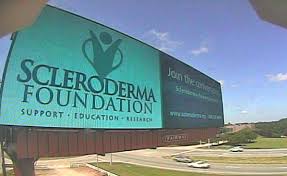Mindful Caregiving 1
I have been invited to give an address to the Tri-State Scleroderma Foundation in Binghamton, NY on August 10. My address is not to address the issue of Scleroderma per se but rather to help the caregivers of individuals of Scleroderma or for that matter any progressive or chronic disease. And so the information presented here is motivated by and derived from this issue and concern.
The primary focus is on the emotions involved in being the caregiver of someone with scleroderma, or any progressive or disabling disease. Anyone in a protracted care-giving role is likely to experience a variety of very difficult emotions including anger, frustration, futility, guilt, shame, helplessness, hopelessness, despair, loneliness and isolation, sadness, loss and so on. What one does with these feelings will to a large measure determine their emotional, psychological and even biomedical response to their care-giving role.
The fact is that caregivers are more likely than the general population to experience depression, anxiety disorders, insomnia, obesity heart attack, stroke, compromised immune support, cancer and so on. However it doesn’t have to be that way. It all depends on how the caregiver responds to these emotional challenges that will impact their own adaptive capacity and health.
So to highlight this, consider the following and contrasting case vignettes.
Once upon a time in a hospital far away, I was asked to do an emergency consult with a patient who was a well known physician. Sadly he incurred a profound right hemisphere stroke which left him quite disabled despite a variety of rehabilitative endeavors. I was asked to determine his mental competency to make medical decisions on his own behalf. I made the determination that his cognitive and emotional deficiencies rendered it so that in fact he was no longer able to be competent to make decisions. I met with his wife in order to get her impressions and to provide my own. I was very struck by her extreme candor and acceptance of not only his current status but the nature of their long marriage together. To my shock and relief she stated “ you don’t have to mince words with me doctor, lets face it, everybody knows he was a real bastard. I married him and so I stayed true to my vows, but I never deluded myself as to who or what he is.”
Another patient, who I am currently seeing was referred for profound insomnia and anxiety. Her husband had been diagnosed with Parkinson’s disease, which was requiring more and more dependence on my patient. Throughout the marriage, he had always been extremely remote and would bury himself in his art and reading books and was almost completely withdrawn. My patient had never acknowledged her real feelings about him to herself or anyone else and always attempted to maintain the pretense that everything was OK. Consequently her feelings manifested through increased overall physiological arousal, which drove her symptoms.
So, in the first vignette, this woman was able to acknowledge and embrace her feelings and thus, despite the great challenges of the situation, maintained excellent coping and didn’t seem to suffer adverse consequences.
The second person on the other hand maintained an avoidant stance towards her feelings and attempted to maintain a visage of control, and suffered greatly for it.
So, this underscores the thrust of my message which is to be able to identify, accurately and discriminatively label, and mindfully embrace and expose the various so called “dark emotions” that are likely to arise during the care giving journey. This is to not only survive the journey, but to use it as an opportunity to promote your own personal growth.
Please, all are invited to provide their own thoughts, questions, experiences on this topic.






1 Comment. Leave new
Hi Jerry this is a great topic..would like to see a conference for parents of kids with disabilities and the professionals who work with them.Check your schedule for the Fall and Spring for availability for this topic.ECDC brings in professional national speakers from all over the country, but I would rather give the business to a local expert. All of our conferences are free to the public.We are holding one soon at Doubletree Hilton and other venues across our 12 counties in NY…Sue